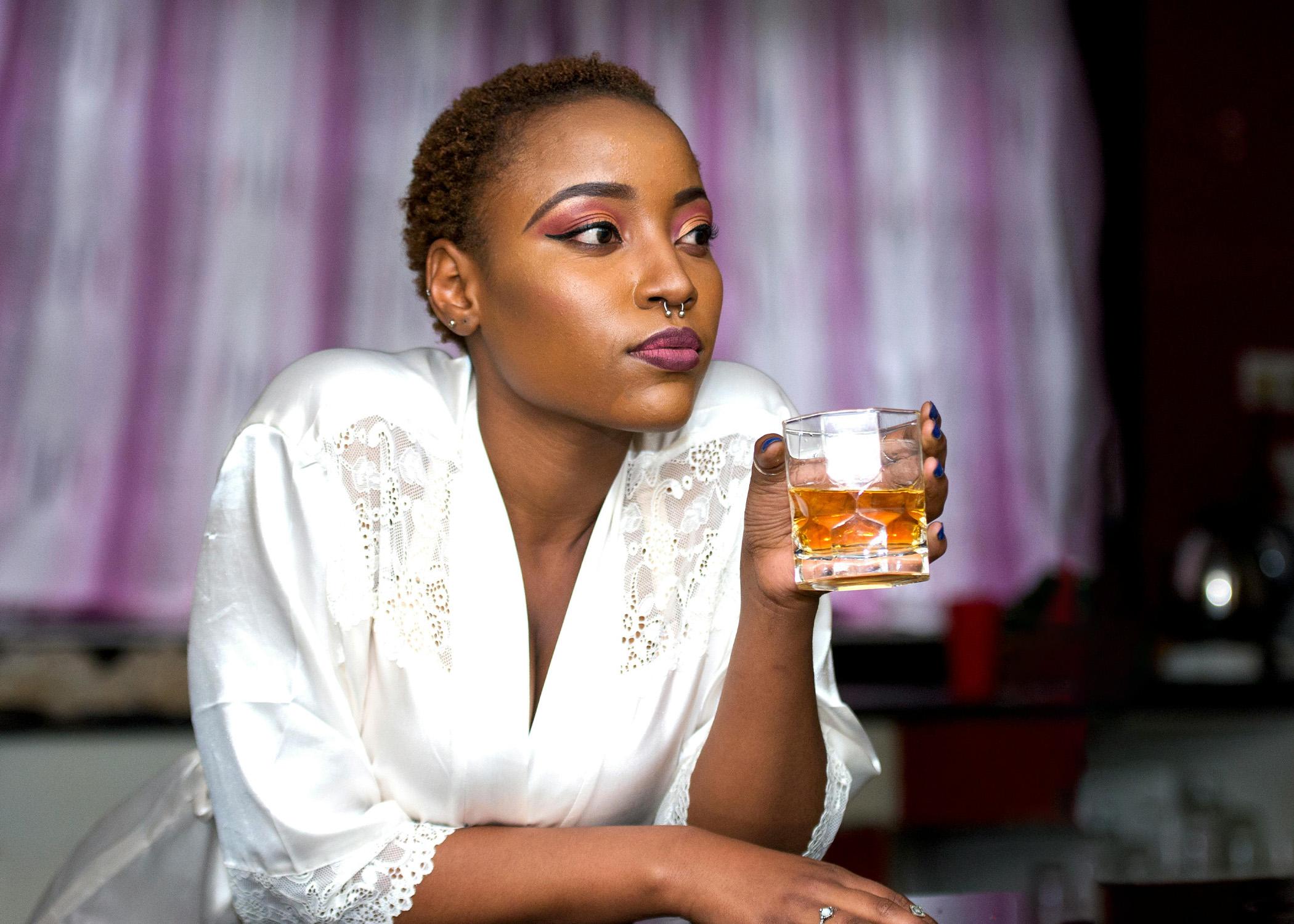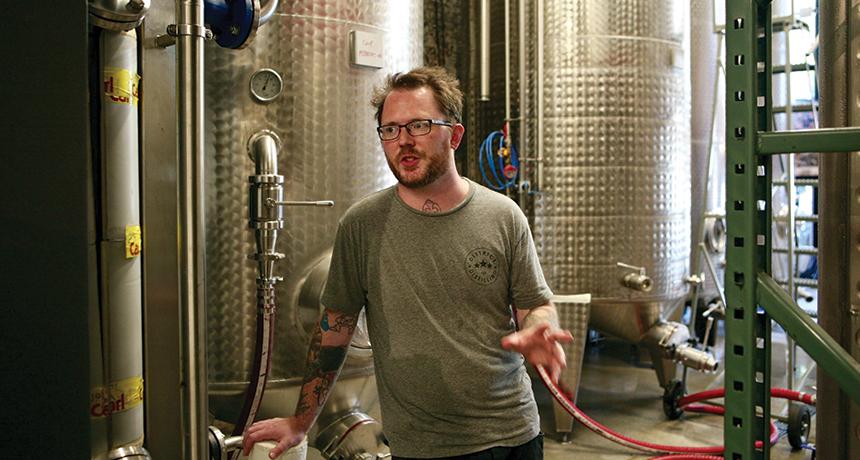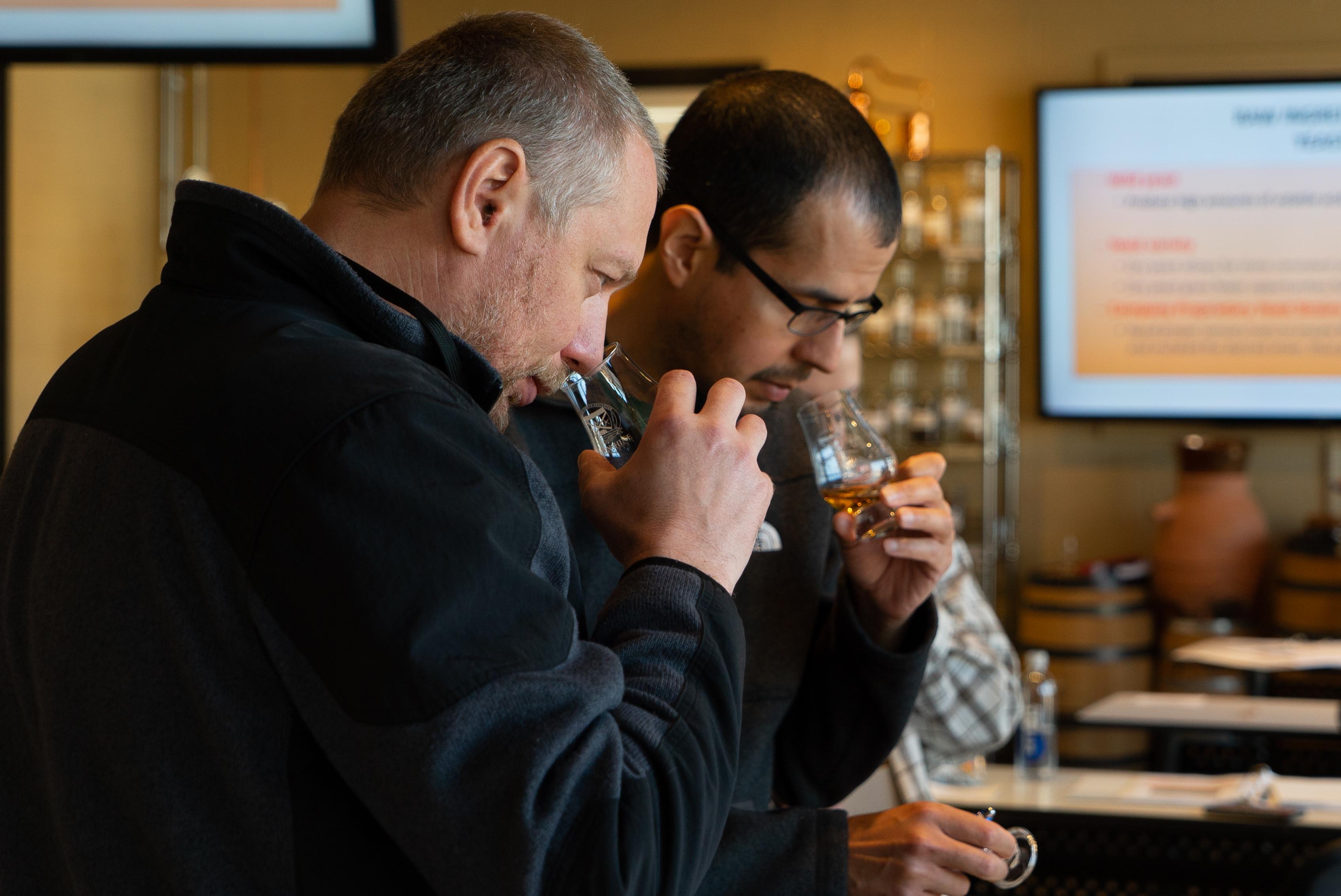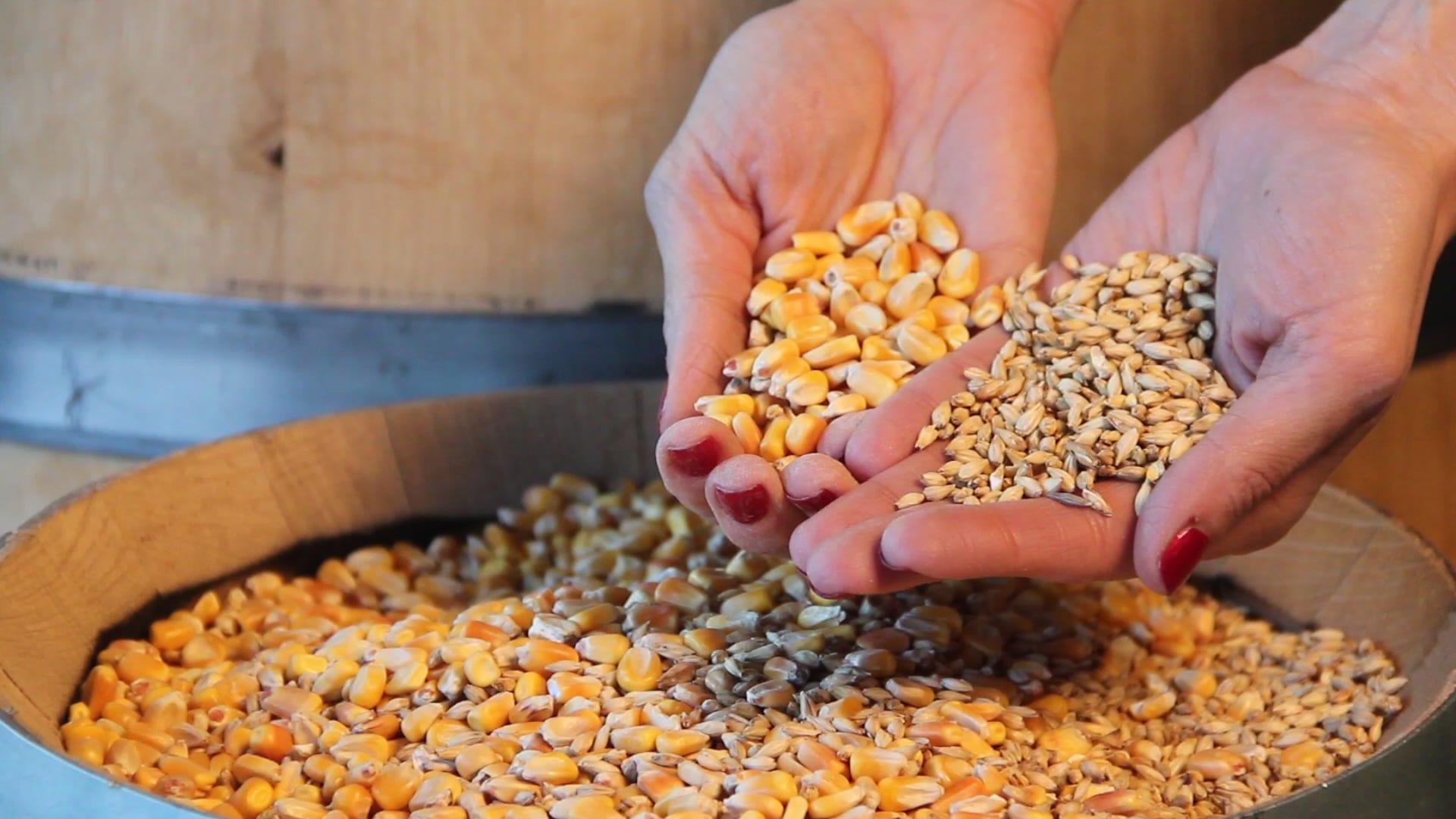
The Art of Non-Alcoholic Spirits
blog
For decades, spirits and cocktails have fostered a culture of craft, connection, and celebration. But over time, cocktail culture has evolved far beyond the buzz!

Ever thought about opening your own distillery? What would you produce? If you ask Matt Strickland, he'll suggest whiskey. Ahead of Moonshine University's next Whiskey Workshop, we talked to whiskey expert Matt Strickland, Head Distiller at Distillerie Cote des Saints and Founding Distiller of District Distilling Co. Hear the inside scoop on whiskey, how he built a career around his passion, and what lies ahead for the whiskey business in this latest edition of our 11 Questions series:
"I did my Master's in Oenology and Viticulture at Oregon State University. I loved wine, but I really thought that I wanted to be in the beer world. So, as I was finishing my thesis, I took a job in Southern California managing one of the largest barreled beer programs in the country. It was an exciting opportunity, but it turns out that I really didn't enjoy either the company I worked for or Southern California.
My wife and I began looking to move back to my home state of Tennessee. I reached out to some old friends to see if there were any job openings in the brewing sector and I got a hit from the guys at Corsair Distillery. They hired me to take over their R&D work on their whiskeys. I had never distilled before, but they were willing to show me the ropes. I've never looked back."
"There is something beautifully archaic about whiskey production, especially single malt whiskey. It's really a very hands-on process. My senses are involved in every step-from growing our grains to malt reception, to mashing, fermentation, distillation, and maturation. It's an exercise in patience and humility. Despite all our technological advances, you simply cannot force good whiskey to happen. It takes time, a steady hand, and a willingness to admit that you don't have complete control over the outcome."
"I'd say that leaves more for me to drink! I think it's fine if you don't have a preference for whiskey or gin or rum or whatever. However, I've found over the years that most people just haven't tried really good whiskey. The category is so huge, and there is a kaleidoscopic array of aromas, colors, and flavors-there's usually a style of whiskey for everybody."
"I bounce around on this quite a bit. I make a lot of cocktails at home-few things are as comforting as a properly made Old Fashioned or Manhattan. However, just as often I will find myself pouring a dram neat or over a single ice cube. It kind of depends on my mood."
"I was still working at Corsair at the time. I was introduced to Colin and the Moonshine University folks through my boss, Andrew Webber. He had asked me to come up to Louisville to assist him while he taught a workshop on gin. From there the conversation between me and Colin just kind of kept going. We would bump into each other at a conference and chat or grab a quick bite. At one point he asked me and Clay Smith, who I was also working with at the time, if we would be interested in designing our own class.
Because I was doing so much R&D with Corsair, I proposed doing a sort of ‘Alt-Whiskey' class back in 2014. We tried it and people liked it, but we all agreed that the class needed a bigger hook, a better reach. So, I transformed it into a class on world whiskey styles and, since then, it has steadily evolved to cover a grain-to-glass exploration on whiskey."
"I approach my classes with the simple motto, ‘tools not rules.' I don't believe there is really any singular way that things have to be done in the whiskey business. I like giving my students a set of tools and knowledge base through which they are equipped to produce great whiskey in their own unique fashion-the way they want to make it.
I could tell you how to make bourbon the way the big guys do it-and that is something I do talk about during the class-but since they can do it bigger, cheaper, and more efficiently, why would you want to copy and paste their methods? Everyone has something unique to say with their spirits and my class is designed to provide students with the know-how required to better tell their story through the liquid in the glass."
"Line up 100 distillers in a room and tell them to go make bourbon. You'll get 100 different bourbons and most of them would probably taste pretty good. There's more than one way to skin a bourbon…or something like that. Classes like this and many others that MU offers, will hopefully give industry veterans some different perspectives on how they approach whiskey production. I find this to be true even for myself.
One of the reasons that I love teaching this class so much is that every student comes in with a unique set of experiences and perceptions on whiskey. A student will ask me something that forces me to look at some part of the whiskey production process in a different way and that can be unbelievably invigorating when you're working on new products or with new techniques."
"I really enjoy meeting the students and hearing about where they come from and where they want to go. I encourage people to keep in touch after the class ends because I genuinely want to know how their distilling adventures are going. Sometimes they let me try the whiskey they've been working on which is always a nice bonus."
"I try to make it a fairly open and conversational experience. If you come wanting to know about some aspect of whiskey production that I'm not going into enough detail on, then just raise your hand and let me know. I'm happy to go off in different directions. I really want people to get the info that they came for. If that doesn't happen, then I don't feel like I've done my job as an instructor."
"That's the million-dollar question, isn't it? Distilling looks to be in a healthy place and whiskey is likely going to always be a major part of that. The industry has pushed for premiumization over the past few years and I think that's great; however, I think there's also room to play around in the everyday sipper space, as well.
As far as the category is concerned, I think we're only tasting the tip of the proverbial iceberg when it comes to all the potential styles, ingredients, and flavors that are possible. I expect the next two decades to be really exciting, especially as more entrepreneurial distillers get into the business."
"You can never learn too much. Ask questions. Read all you can. Take classes. Aside from it being illegal, home distilling doesn't really scale your skills that well to a professional distilling setting like home brewing (sort of) does. There are a growing number of educational resources available to take advantage of. Courses like the Whiskey Workshop and the many others that Moonshine University offers are an excellent place to start!"
To register, visit this link. Enroll early to take advantage of our Early Bird special, which includes your stay at our contracted hotel. This course is typically only offered twice a year, so reserve your spot now!
Interested in advancing your knowledge of distilling and the spirits industry? Check out Moonshine University's other upcoming courses to learn from the best in the business.
ABOUT MATT STRICKLAND: Matt has worked in the Beer, Wine & Spirits industries since 2012. At Corsair Artisan Distillery, he functioned as Head of R&D in Nashville, Tennessee, before becoming Head Distiller at District Distilling Company in Washington DC. From there, Matt moved to Canada to be Head Distiller at Distillerie Cote de Saints while also offering services and consultation assistance through his business, DRAM.
ABOUT WHISKEY WORKSHOP: Become a whiskey connoisseur with this 2-day grain-to-glass exploration of whiskey. We'll cover a wide variety of classifications, detailing the individual distillate components and standards of identity. Students will also receive an in-depth understanding of traditional and non-traditional whiskey production, from fermentation through maturation. Sensory exercises and hands-on product development with table-top distillation allows participants to experiment further with these processes before moving onto the larger equipment in our distillery. To learn more and register, visit this link.

blog
For decades, spirits and cocktails have fostered a culture of craft, connection, and celebration. But over time, cocktail culture has evolved far beyond the buzz!

blog
Those that are familiar with the process of crafting distilled spirits may also be familiar with the 10 common congeners that are created during fermentation, and honed during the distillation run. Each congener has its own distinct personality, rendering unique tastes and aromas to the finished spirit.

blog
So, you want to start distilling with freshly milled grain. Maybe you're tired of paying top dollar for the pre-milled stuff from the malt distributor, and you're ready to invest in the quality, efficiency, and bulk pricing that comes with milling your own whole grain. But where do you start?